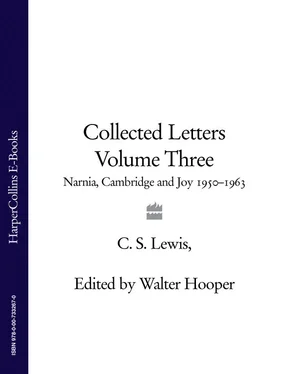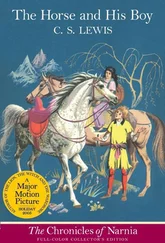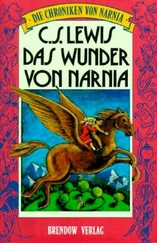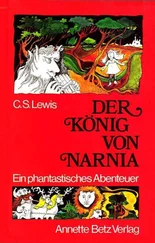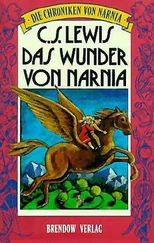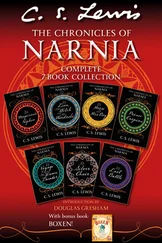121Monsignor Ferdinand Vandry (1887-1967), Rector of Université Laval, Quebec, wrote to Lewis on 6 June 1952 to say the University wanted to confer on him an Honorary Doctorate of Literature. No difficulties were put in the way of Lewis receiving the degree in absentia , and it was duly conferred upon him on 22 September 1952.
1221 Corinthians 12:27.
123The two nonsense poems referred to are the one reproduced above, and ‘Awake, My Lute!’, published in The Atlantic Monthly , CLXXII (November 1943), pp. 113, 115, and reprinted in Poems and CR
124Rudyard Kipling, Just So Stories (1902).
125A vol is a heraldic symbol consisting of a pair of outstretched wings, connected together at the shoulders without any bird’s body in the middle.
*Except the Unbelievable, of course: he has more sense than we have!
126It is not known which of the letters to Borst this undated poem, in the style of Spenser’s Faerie Queene , accompanied. It seems likely that it was sent with the letter of 22 June 1952.
127In 1950-1 Bodle trained at the Department of Education of the Deaf at Manchester University, and at this time she was teaching at the Manchester Royal School for the Deaf.
128Helen Keller, The Story of My Life (New York: Doubleday, Page & Company, 1903). Born blind and deaf, Helen Keller (1880-1968) learned to read, write and speak from her teacher, Anne Sullivan. She graduated from Radcliffe College, and lectured widely on behalf of deaf people.
129Roger Lancelyn Green, From the World’s End: A Fantasy (Leicester: E. Ward, [1948]).
130See Lewis’s comments on George Rostrevor Hamilton’s The Tell-Tale Article: A Critical Approach to Modern Poetry (1949) in the letter to Hamilton of 14 August 1949 (CL II, pp. 966-7).
131David Craigie, Dark Atlantis (1951).
132‘Orichalcum’ is golden copper.
133Blessed Virgin Mary.
134Of his poem, ‘The Pilgrim’s Problem’, first published in The Month , VII (May 1952), p. 275, and reprinted in Poems and CP .
135See the letter to Greeves of 18 September 1916 (CL I, pp. 221-3).
136See the biography of Geoffrey Bles in CL II, p. 554n.
137‘Mycroft’ was Bles’s name for Warnie, a joke the Lewis brothers greatly enjoyed. Mycroft is the name Sir Arthur Conan Doyle gave the mysterious elder brother of Sherlock Holmes. He is first mentioned in ‘The Adventure of the Greek Interpreter’ in Memoirs of Sherlock Holmes (1894), in which Holmes says: ‘My brother would be the greatest criminal agent that ever lived. But he has no ambition and no energy. He would not even go out of his way to verify his own solutions, and would rather be considered wrong than take the trouble to prove himself right.’ The mysterious brother is also mentioned in ‘The Adventure of the Bruce–Partington Plans’ in His Last Bow (1917). In that story Holmes says Mycroft ‘has the tidiest and most orderly brain, with the greatest capacity for storing facts, of any man living’.
138Lewis was referring to Le Lion et la Sorcière Blanche , trans. Émile-R. Blanchet (Paris: Librairie Hachette, 1952), the French translation of The Lion, the Witch and the Wardrobe .
139 Le Lion et la Sorcière Blanche , ch. 17, p. 185: ‘great shame would we have’.
140 Mere Christianity .
141On ‘Parson’s Pleasure’ see CL I, p. 304n.
142Young published his essay on Lewis’s trilogy as ‘The Contented Christian’ in the Cambridge Journal , V (July 1952), pp. 603-12.
143Driver probably had in mind Richard Capper’s Judith: An Historical Drama (1867).
144Hermann Hesse, The Glass Bead Game , trans. Mervyn Savill (London: Aldus, 1949).
145In George Orwell’s Nineteen Eighty-Four (1949).
146Horace, Ars Poética , 70-1: ‘Multa renascentur quae iam cecidere, cadentque/quae nunc surit in honore.’ (The next word in the poem, vocabula , refers not to ‘many things’ but ‘many words’–words that go in and out of favour in literary language.)
147i.e., Anthroposophists. See the letter to Montgomery of 10 June 1952.
148Lewis was referring to the Latin poem, ‘Dies Irae, dies ilia’ (‘Day of wrath’) by Thomas of Celano (c. 1200-1260), companion and biographer of St Francis of Assisi. The poem forms a part of the requiem Masses in the Roman Missal.
149Revelation 22:20.
150John 13:34.
151John 16:22.
152Bodle was returning to New Zealand to teach at the School for the Deaf, Titirangi, Auckland, and she had asked for Lewis’s prayers.
153Charles Williams Dunn (1915–) was one of the editors of Major British Writers . He was also editing at this time A Chaucer Reader: Selections from the Canterbury Tales (New York: Harcourt Brace, 1952). Dunn was the editor (with E. T. Byres) of Middle English Literature (New York: Harcourt Brace, 1973) and many other works.
154Lewis had just finished his mammoth English Literature in the Sixteenth Century .
* And also has real grammar, not like Middle English!
155One part of the examination system at Oxford University consists in a spoken or viva voce (‘by the living voice’) examination.
156George Sayer’s cat.
157See Anne Barbara Scottin the Biographical Appendix. She had attended Charles Williams’s lectures when an undergraduate, and she and Williams became close friends.
158The draft of Scott’s letter of 26 July 1952 referred to here by Lewis is preserved in the Bodleian Library (MS. Eng. lett. c. 220/7, fols. 10-14).
159In his Commentary in Arthurian Torso, Containing the Posthumous Fragment of The Figure of Arthur by Charles Williams and A Commentary on The Arthurian Poems of Charles Williams (London: Oxford University Press, 1948), Lewis wrote: ‘Between this poem and the Last Voyage we should probably place The Meditation of Mordred . The doom of Logres is almost accomplished. Gawaine, the king’s nephew, son of Morgause and Lot, whom Williams calls “the canonical Gawaine” because the canon or code of earthly honour is his only principle, urged on by his half-brother Mordred, has revealed to Arthur the loves of Guinivere and Lancelot’ (ch. 5, p. 177).
160‘The Meditation of Mordred’ in Charles Williams, The Region of the Summer Stars (1944). Scott said in her letter: ‘(1) “Canonical G.” is surely the ecclesiastical equivalent of “legitimate G.”–his birth was approved by the laws of both Church & State, as that of Mordred was forbidden by both. Thus, in the Meditation , M. refers to the K. as “my uncanonical father” ‘(Bodleian Library, MS. Eng. lett. c. 220/7, fol. 13).
161Williams, Taliessin Through Logres , ‘The Departure of Merlin’, XIII, 4.
162Scott asked in her letter: ‘(2) Is not “the world’s base” Caucasia, & “the worm in the world’s base” the Caucasian women, all loving naturally as opposed to arch-naturally? Guinevere’s vocation was to “exhibit the glory” so clearly & resplendently to the women of Logres that they should not be able to help being “brought to a flash of seeing” (or as my husband more forcibly puts it “her job was to make the silly ones sit up & take notice”)’ (Bodleian Library, MS. Eng. lett. c. 220/7, fol. 13).
163Williams, The Region of the Summer Stars , ‘The Prayers of the Pope’, pp. 46-55.
164 Arthurian Torso , ‘The Grail and the Morte’, p. 180: ‘In The Prayers of the Pope we are invited to study more fully this extinguishing of lights. The situation which “the young Pope Deodatus, Egyptian-born” contemplates is of course very like that which Williams contemplated in 1944 and which we still contemplate in 1946. But the poem is not simply a tract for the time. We are seeing, partly, the real present; partly the imaginary world of the poem; partly the real past, the division of Christendom which culminated with the breach between Pope and Patriarch in 1054 and the great retreat of Christendom before Islam which had preceded it.’ In her letter of 26 July 1952 Scott observed: ‘(3) About the “women of Burma” in The Prayers of the Pope , there was an explanation on the level you reject as well as the other, & far more important, meanings. Towards the end of my time at Oxford I went to walk, on most afternoons…with Charles Williams…& at one such time when he was working on that poem, he was speaking of the difficulty of devising some method of defeat for the octopus & saying, of course playfully but seriously in the game, that points in the Taliessin poems had coincided with points in the war so often that he must hurry up and do it, or the Japanese would have taken India before he had thought how to stop them’ (Bodleian Library, MS. Eng. lett. c. 220/7, fol. 13).
Читать дальше
